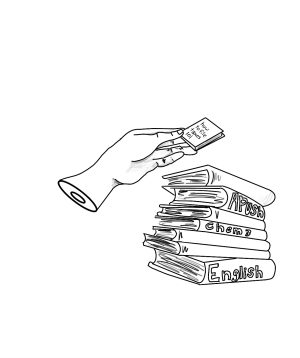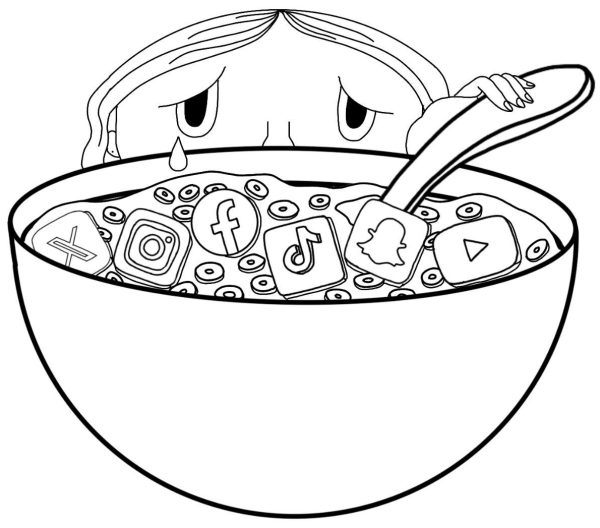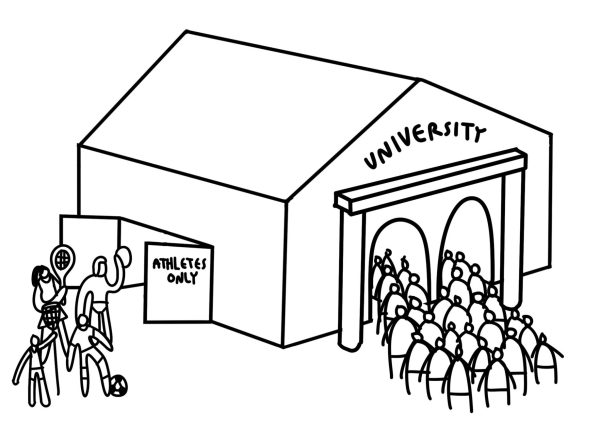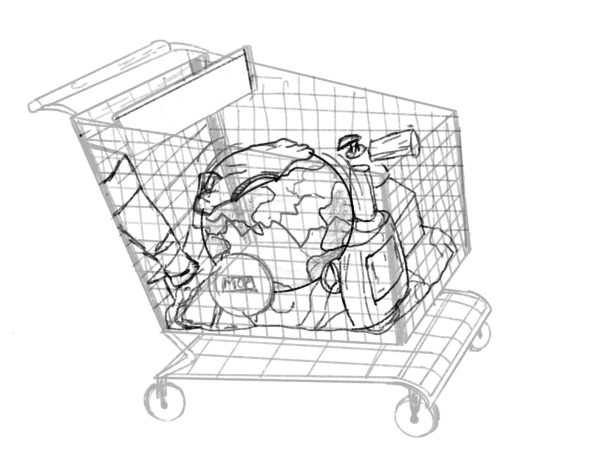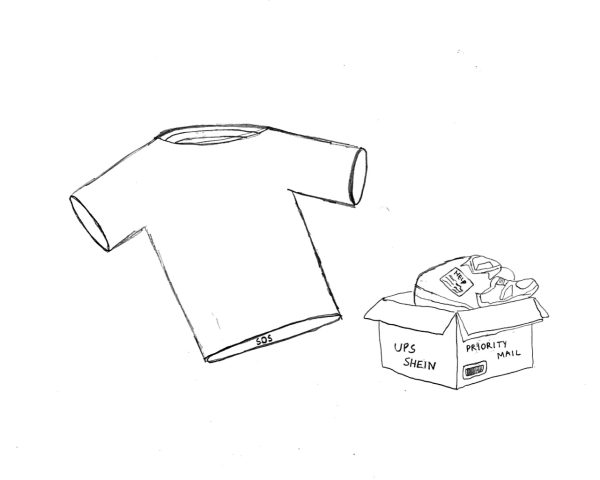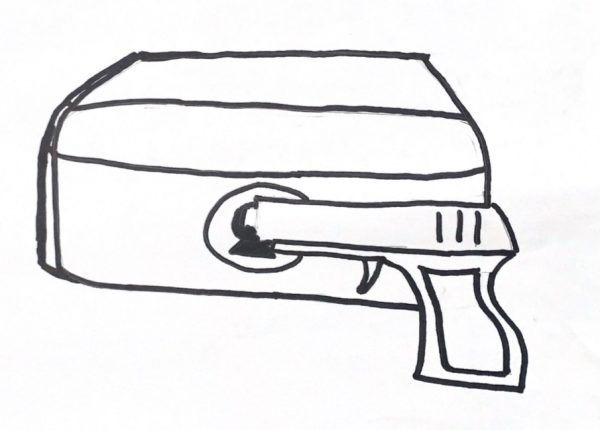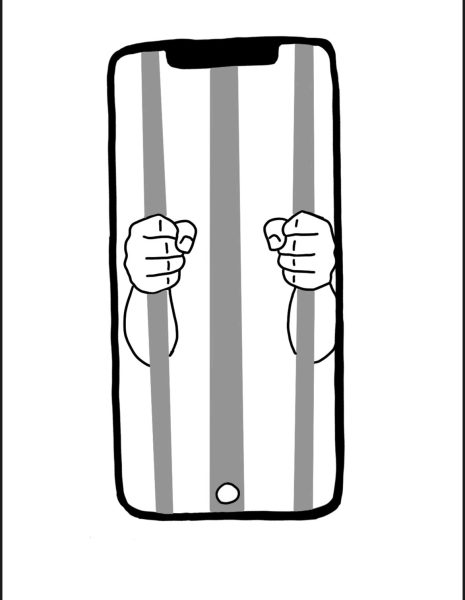The effort to run cover for Andrew Cuomo reveals the rot at the top

Illustration by Calla McBride
September 9, 2021
Over the past year, former New York governor Andrew Cuomo has experienced, to put it mildly, a fall from grace. A year ago, he was a political celebrity among liberals. He was hailed as a sort of savior, and his handling of COVID-19 was supposedly an antidote to the chaos and mismanagement of the Trump administration. His supporters referred to themselves as “cuomosexuals,” and several members of the political pundit class showered him with praise, including MSNBC prime time host Rachel Maddow even referring to him as a “second president.”
Fast forward to today, Cuomo is now a disgraced figure by all media standards; forced to resign in shame following the revelation of the nursing home scandal along with the 17 harrowing allegations of sexual misconduct made against him. Yet, as horrifying and consequential his actions were, the people in positions of power who tried to cover for him should be treated as a far more significant scandal, as it is representative of the broader trend of power structures and politicians protecting each other.
As with any social and political scandal, there were several culprits involved in ensuring that Cuomo stayed in power as long as he did despite the fact that sexual assault allegations had been lining up since December 2020. The most obvious of these culprits, yet still the most egregious, is CNN. When COVID-19 became a dominant force in the lives of most Americans, CNN needed a figure to present to their audience that they could use as a counterweight to the extreme mishandling of the virus by Donald Trump. Cuomo was their weapon of choice.
On the surface, it made sense. Unlike Trump, Cuomo seemed to take the virus seriously, and encouraged safety protocols such as mask-wearing; and though Cuomo’s press conferences were incredibly condescending, they seemed to send a consistent message. CNN’s praise for Andrew Cuomo spread throughout most of their main anchors, most notably his younger brother, Chris Cuomo. On regular occasions, Chris would frequently host his brother on his prime-time show in interviews that felt more like a dinner party conversation rather than reliable journalism. Among these bafflingly awkward Cuomo segments, Chris referred to his brother as “love gov,” teased his brother about the size of his nose with a giant COVID-19 test swab and joked about him being “single and ready to mingle” (that one aged well). These interviews were so ethically questionable that, according to New York Times reporter Ben Smith, CNN had to roll back a 2013 ruling that barred any interviews between the Cuomos on prime time. Yet on March 1, after Cuomo’s momentum had long faded and allegations of sexual assault had piled up, Chris announced that he “obviously cannot cover [the situation]” due to their familial relationship. It shouldn’t take a Pulitzer prize-winning journalist to realize that if Chris Cuomo truly cared about conflict of interest, he would not have gone anywhere near his brother during the pandemic, let alone conduct softball interviews with him.
While Chris Cuomo had already proven how ethically shady he was as a ‘journalist’ he, simultaneously, was a member of the advisory that, per an excellent New York Times report, assisted Cuomo in his public messaging and attacked the credibility of his assault accusers. Among the advisers mentioned in the article, the former president of the Human Rights Campaign (HRC) Alphonso David and former head of Time’s Up Tina Tchen provided Cuomo with prominent aid (I say ‘former’ because Tchen resigned and David was fired following the scandal). HRC is the largest LGBTQ+ political lobbying group in the country, whereas Time’s Up is an organization that became prominent in the #MeToo era, supporting and raising money for victims of sexual harassment and assault. This is especially significant, as Time’s Up has recently come under fire for refusing to help Joe Biden’s accuser, Tara Reade. These two cases, in particular, validate the claim made by Harvey Weinstein accuser Rose McGowan and many others: the main forces behind the #MeToo movement have been consolidated by political interests, and are unwilling to help sexual assault victims when it is politically inconvenient.
So what’s the takeaway here? When you think about it, it’s actually pretty simple. No matter what the circumstances, and no matter who’s involved, power will always protect power. It’s been a common theme throughout U.S. history, from the Watergate Scandal to the bailout of Wall Street subsequent to the 2008 financial crisis. Politicians will frequently receive money from lobbying groups, with those lobbying groups then having a say in certain legislation passed by those politicians. This pattern of power structures working to protect each other exists on both sides of the aisle. Had it been a prominent Republican who had been accused of sexual assault, conservative special interest groups would have undoubtedly done everything in their power to run cover for them as well. Cuomo may be out of office, but the damage of what he did and the ugly aspect of American politics he represents, will always live on.







